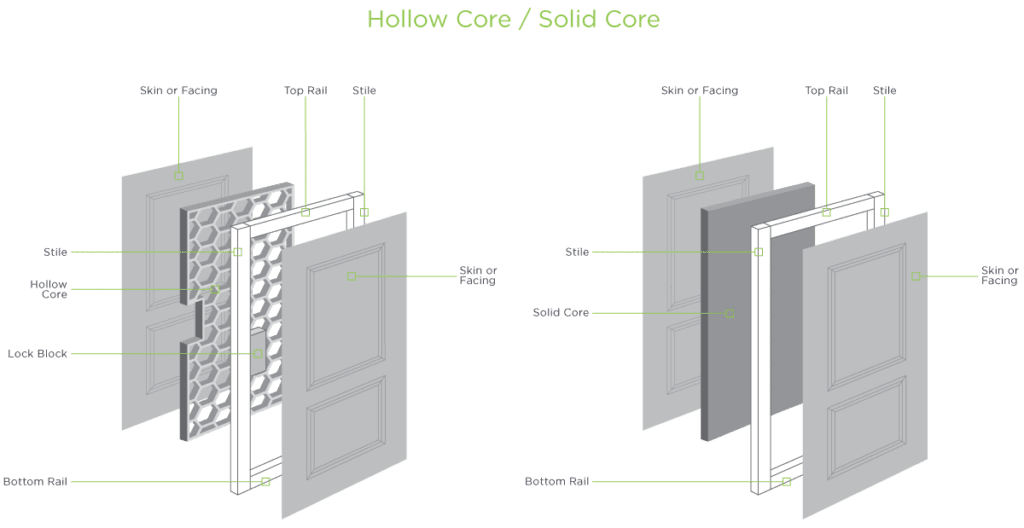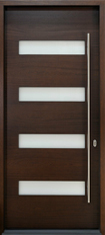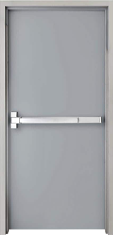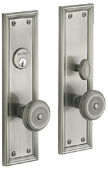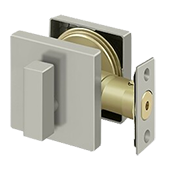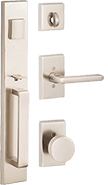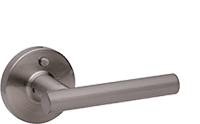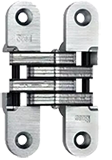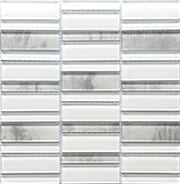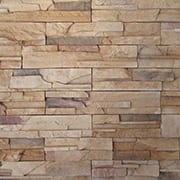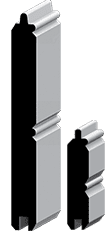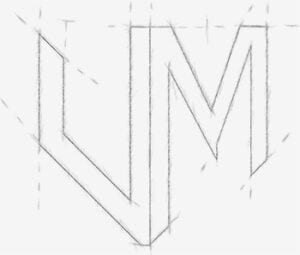Door Buying Guide
Things to Know Before You Buy
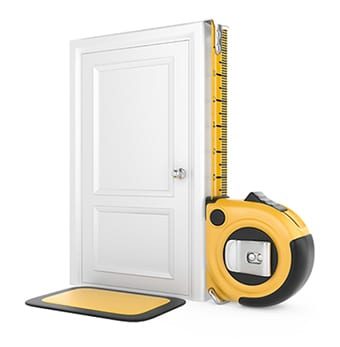
DOOR TYPE
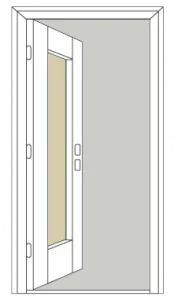
PRE-HUNG DOOR
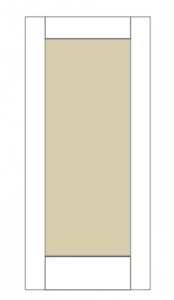
SLAB
SIZES AND MEASUREMENTS

Standard widths are 24, 28, 30, 32 and 36 inches, while the height must be a minimum of 80 inches. For a slab door, measure the width, height and thickness of the door. For a pre-hung door, measure the width and height of the slab, the rough opening (space between the studs with no door installed), and the thickness of the jamb.
DOOR HANDING GUIDE
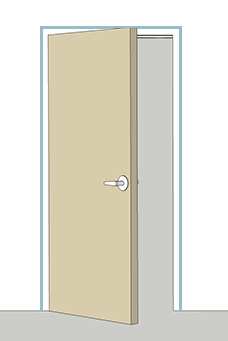
LEFT HAND REVERSE
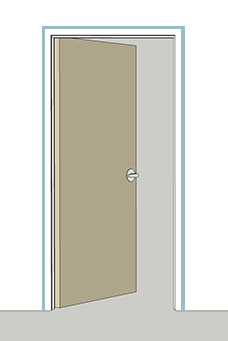
LEFT HAND
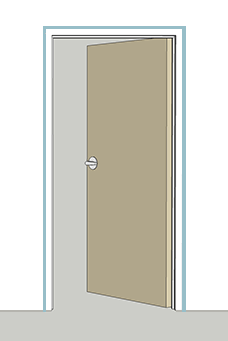
RIGHT HAND
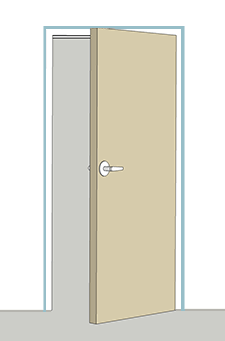
RIGHT HAND REVERSE
DOOR STYLES
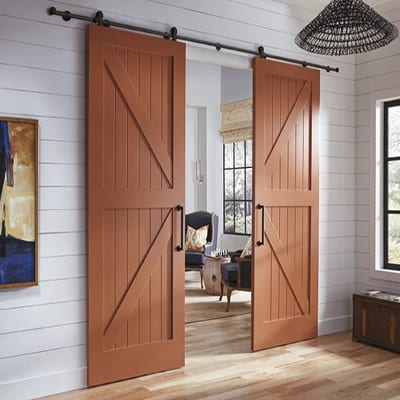
Barn Doors
Barn doors are a great way to separate rooms, while providing an artisan flair to any space. Some barn doors glide along an upper rail, and others have a bottom track to prevent the door from swinging. Barn doors range from rustic to polished and come prefinished or unfinished in a variety of styles. We also offer a kit to convert most doors into a barn door.
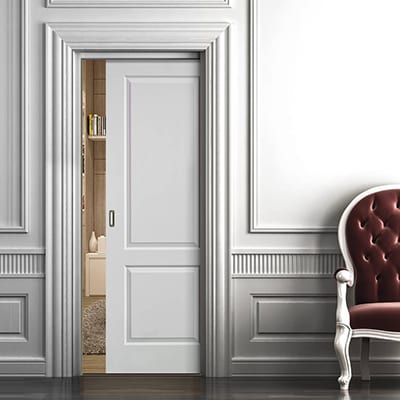
Pocket Doors
A pocket door is a sliding door that opens by sliding along its length and disappearing into a compartment in the adjacent wall. Pocket doors are used for architectural effect, or when there is no room for a swinging door. They usually travel on rollers suspended from an overhead track, although some also feature tracks or guides along the floor. Single and double door are used, depending on the width of the entry.
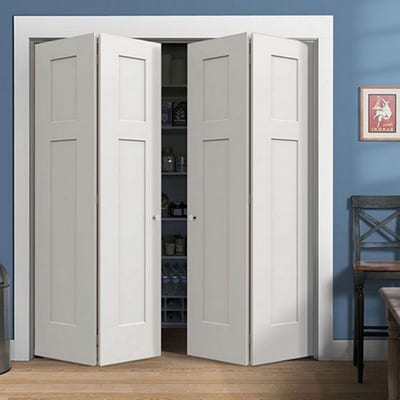
Bifold Doors
Bifold doors are hinged with symmetrical door panels that fold outward and to the side as a pair when opened. Many bifold doors are louvered, allowing for better air circulation than traditional doors. Bifold doors don't swing and take up less space than a hinged door, making them a great choice for closets, laundry rooms, utility rooms or room dividers.
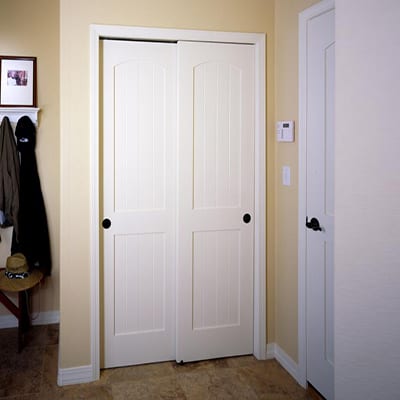
Bypass Doors
A bypass door consists of two or more sections that can slide in either direction along one axis or parallel overhead tracks, so that they slide pas each other. They are most commonly used as closet doors, in order to access one side of the closet at a time. The doors in a bypass unit will overlap slightly when viewed from the front to eliminate any visible gap between them.
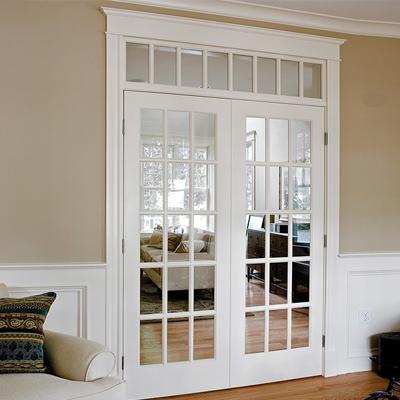
French Doors
When thinking of French Doors most envision a large pane of glass sectioned into smaller panels that may also be referred to as window grids or divided lites. A French door is more than just an entry or exit point. It’s an elegant way to allow natural light to fill your home and has more benefits than just their sheer beauty.
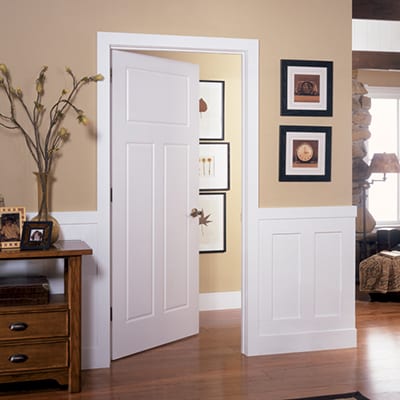
Swinging Doors
This is a hinged door that swings into or out of a room, and is the most standard interior door application
DOOR FINISHES
PRIMED
Primed doors are prepped with a coating that seals the wood and makes it easier for the stain or paint to adhere. Primed doors are a great choice if you want to paint the door yourself. Giving you flexibility in style and color.
STAINED
Stained doors enhance the natural wood pattern and creates an even color tone, allowing the natural wood to shine through. Stains come in a variety of shades from lights, such as honey maple to darks, like black or espresso.FINISHED
A prefinished door is factory-finished and ready for installation using machinery and techniques that are a step above what you might have available at home. With precut door holes and hinge screw holes. Just requires installation.UNFINISHED
Unfinished doors are a blank slate and require more work than prefinished doors. They’re pre-sanded but not stained or painted. Interior doors are available in a variety of styles, giving you the option of enhancing every room in your home.CORE TYPE
A Hollow core doors are lightweight, inexpensive, easy to install and popular choice for many homeowners. Their versatility makes them ideal for bedrooms, bathrooms and closets; however, they don’t offer high-quality sound blocking and have little fire resistance. Cutting hollow core doors can be tricky because they aren’t truly hollow. Inside is a foam or cardboard core. Measure the amount to trim, align and use a utility knife to score with a straight edge. Clamp a straight edge cutting guide to the door, and cover the score with m asking tape all the way around the door to help prevent chipping. Cut with a power saw. Solid core doors are sturdier, heavier and offer better soundproofing than hollow core. They’re better insulated, offer the look, feel and durability of solid wood without the cost and provide good fire resistance.
Tip:
When trimming a hollow core door, cut at the bottom and no more than 1-1/2 inches.
